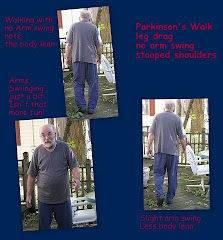It's taken awhile to get this article ready so our apologies to Ken and Hen.
According to Phytopharm, Cogane also known within the company as PYM50028, is a non-peptide orally bioavailable neurotropic factor inducer that crosses the blood-brain barrier. Cogane stimulates the release of neuronal growth factors and increases neurite outgrowth by elevating the levels of GDNF, glial derived neurotrophic factors. Cogane also increases the levels BDNF, brain derived neurotropic factor. Neurotrophic factors can aid the survival of neurons.
GDNF is a protein which has been encoded by the GDNF gene. In its recombitant form it has been shown to promote the survival of dopamine neurons for PD and motorneurons for ALS. GDNF also promotes the survival of serotoninergic and catecholamingeric neurons. The catecholamingeric neurons control a variety of cognitive, motor and endocrine functions. They are associated with many psychiatric and neurodegenerative disorders.
The hope for Cogane is that it lives up to its neuroprotective and neurorestorative potential with safety of use which means that while it might be not only a treatment as a PD progression reducer or even progression reversal, it might also be a cure. It may also become a treatment for Alzheimer's disease.
The largest problem with bringing Cogane to the market is the enormous amounts of money that are needed to bring a drug through the requisite trials and application processes. Phytopharm has done a restructuring to reduce costs and to extend its available cash to September 2010. They are also considering other options and are also seeking grant funding. The Michael J Fox Foundation awarded a $1.16 million grant towards the dosage trials. The phase 1 trials has been completed and phase 1b is currently recruiting. The Cure Parkinson's Trust partly funded the latest phase and has since committed to ongoing support to develop Cogane.
One important thing to note is that Phytopharm is not the only company working on the GDNF approach to treating Parkinson's disease. During the next few weeks we will provide information of the status of other GDNF research and development as well as clinical trials.
Good news for Phytopharm is that in March the stock tracking of PYM on London Stock Market was 4.25p Footse (down 3 days later to 4.13p) back again to 4.25p by 3/27/09. As of this morning, PYM was at 6.88p (up 1.93) Results of the Phase 1b trial are expected in the last quarter of 2009 and then Phytopharm can move on to Phase II.
Addendum - June 2010
Phase 1b has been completed and Phytopharm recently announced that they have received FDA protocol approval to begin Phase II clinical trials for Cogane. Enrollment will begin in late 2010. We'll be posting that information and links to enrollment when it is announced.
You can read the Phytopharm press release here













